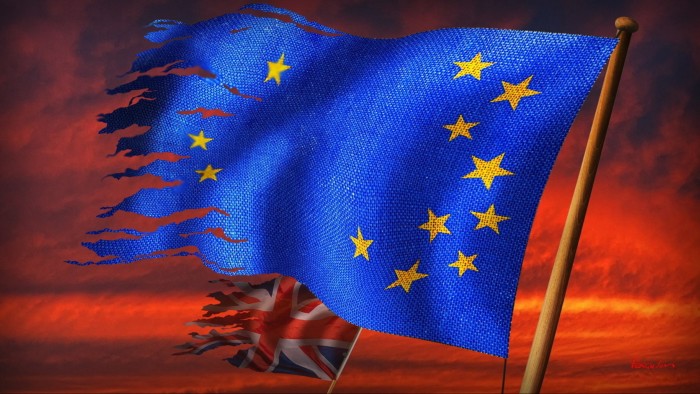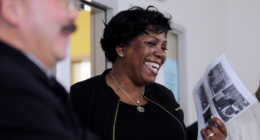Share this @internewscast.com
Gain Complimentary Access to the Editor’s Digest
When WB Yeats penned “The Second Coming” in 1919, he not only created a literary masterpiece but also gifted journalists a timeless reference point. In times of political turmoil, commentators often invoke the lines: “Things fall apart; the centre cannot hold”, followed by, “The best lack all conviction, while the worst are full of passionate intensity.”
These words resurfaced in my mind as I observed the surge of Europe’s radical right. However, the Dutch election last week introduced a twist to the narrative. In the Netherlands, the center did more than just hold—it emerged victorious. The moderate and progressive D66 narrowly claimed the top spot and is poised to lead the formation of the next Dutch government, while the far-right Freedom Party appears to be losing its governmental foothold. This election challenges the pervasive belief that the far right’s rise across Europe is unstoppable, offering a more nuanced picture.
Throughout Europe, disillusionment and frustration have spurred voters to oust incumbents swiftly. When these incumbents are mainstream centrist parties, fringe groups often gain traction. However, when the far right ascends to power, public dissatisfaction can quickly redirect support back to centrist options at subsequent elections.
In 2023, Geert Wilders’ Freedom Party joined the Dutch government due to waning confidence in traditional centrist parties. Predictably, the party struggled to address pressing issues, such as the influx of asylum-seeking migrants and a housing shortage, which further disenchanted voters.
As a result, Dutch voters are now looking towards Rob Jetten, the charismatic leader of D66, for change. Yet, it’s important to remain realistic. By the next election cycle, public sentiment may again shift, growing weary of Jetten’s leadership and prompting another political shake-up. This could potentially pave the way for the far right to re-enter the government landscape in the Netherlands.
Austria has already been through this cycle. Its populist rightwing Freedom party (FPÖ) was part of a governing coalition from 2017-19 before being engulfed by scandal. The FPÖ’s popularity dipped sharply. But the party revived under new leadership and won the largest number of seats in parliament in the 2024 election — although it has been unable to form a coalition.
If the emerging story of European politics is rotation between the centre and the far right, that has serious implications for Britain, France and Germany. In all three countries, a struggling centrist government has the anti-system right breathing down its neck.
The lessons of the Netherlands — as well as Austria, Poland, Italy, Hungary and Slovakia — are that the “unthinkable” does happen and far-right parties can win political power. But they may not necessarily keep it. Even Viktor Orbán, who has been in power in Hungary since 2010, is trailing in the polls ahead of elections next year.
In the big European countries where the centre still holds, it is France that is closest to the edge. The country has got through five prime ministers since the beginning of 2024 and the far-right Rassemblement National leads the polls for the presidential election that is due to be held in 18 months’ time. It is possible that the far right will finally make it to the Élysée in 2027.
In Germany, it is often said that the current coalition government led by Friedrich Merz is “the centre’s last chance”. If so, the centre has cause for concern. Merz has not yet completed a year in office but two-thirds of voters already disapprove of his coalition government — and the far-right Alternative for Germany is now topping some opinion polls.
In Britain, the two parties that have dominated the politics of the last century — the Conservatives and Labour — are now both languishing in the polls behind Reform, the populist right party. The 30 per cent or so of the vote that Reform regularly registers might not be enough to get it into government in a proportional system such as Germany’s. But in Britain’s first-past-the-post electoral system, it could be enough to deliver a parliamentary majority. A general election is still more than three years away. But Nigel Farage, Reform’s leader, is currently the bookies’ favourite to be Britain’s next prime minister.
It will be treated as a political earthquake if the far right makes it into government in a big western European country. But — in fact — it has already happened.
Giorgia Meloni, whose political roots are in Italy’s postwar neo-fascist movement, became prime minister three years ago. Italy’s centre left remains deeply wary of Meloni. As prime minister, she has taken strongly conservative positions on immigration and social issues — but she has avoided the hardline nationalism and erosion of democratic institutions characteristic of Orbán or Donald Trump.
Meloni has also so far escaped the bitter anti-incumbent backlash visible in Britain and France. She looks likely to become only the second Italian prime minister since the second world war to serve a full five-year term.
In doing so, Meloni points to an unsettling possibility for European politics. Perhaps the future will not be a choice between the centre and the far right — but the gradual erasure of the distinction between the two camps.
gideon.rachman@ft.com








